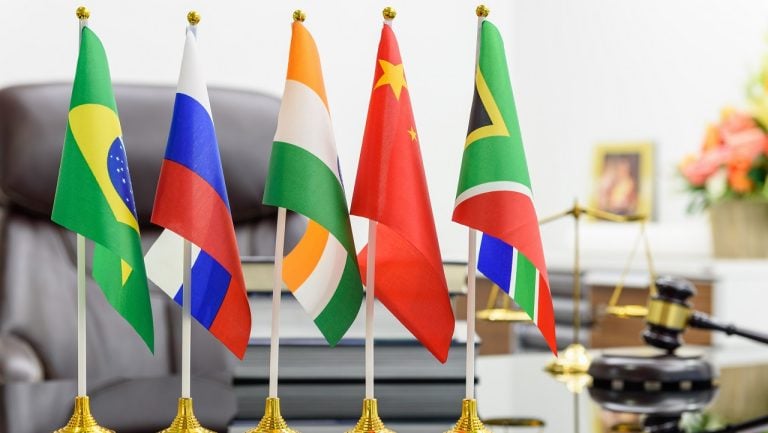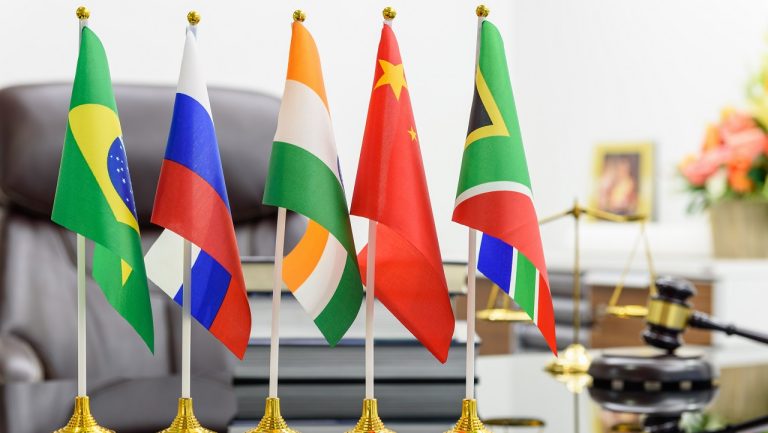BRICS Is No Joke, Bloc Could Become G7 Counterpart, Experts Say


The BRICS challenge to the world’s established economic order is not a joke, according to experts in the field of international relations. Now that the bloc, which unites leading emerging markets, accounts for over a quarter of the global gross domestic product (GDP), it could become a counterpart of the G7 group of developed economies, they say.
BRICS Push for Global Economic and Financial Reform Deemed Hard to Ignore
With more countries willing to join BRICS, which currently consists of Brazil, Russia, India, China, and South Africa, the bloc’s push to reform the global economic and financial system should be taken seriously, according to Anthony Rowley, a veteran journalist specializing in Asian economic and financial affairs.
Given the weight of the economies of the BRICS members, which already account for more than a quarter of the world GDP, “no one can dismiss lightheartedly now their challenge to the established economic order,” Rowley wrote in an article published Saturday by the Hong Kong-based South China Morning Post.
BRICS leaders are preparing to discuss the organization’s expansion during their summit on August 22 – 24 in Johannesburg and the piece quotes South Africa’s top diplomat responsible for relations with the bloc who revealed that over 40 countries have either formally applied or expressed interest in joining the union.
“But it is not so much size that matters as the diverse areas into which BRICS members are projecting their influence,” Rowley remarked. He believes that this diversity is what seems to have guided BRICS towards a more global perspective than that demonstrated by other regional formats.
The journalist also pointed out that BRICS differs from regional trade and investment agreements in seeking to provide members with alternative financing sources, including through its New Development Bank (NDB), launching mechanisms for settlements in local fiat and developing central bank digital currencies (CBDCs). He also said:
BRICS is a natural pole of attraction because its chief focus is to promote multilateralism and global governance, not least in the areas of economics and finance.
BRICS Future Role Depends on China-India Rivalry
At the same time, some see these traits jeopardized by the rivalry between China and India, which have differing views on the bloc’s enlargement. While Beijing is pushing for rapid expansion, New Delhi favors association of other countries without necessarily granting them full membership.
BRICS “could evolve to become a counterpart to the Group of Seven (G7) in world affairs, resulting in a profound impact on international relations,” according to Hung Tran, a non-resident senior fellow at the Atlantic Council think tank. Whether this is positive or negative depends on whether China’s or India’s approach prevails, he was quoted as saying.
Tran elaborated that India “has tried to resist China’s efforts to turn the BRICS group into a support organization for China’s geopolitical agenda … and explicit anti-U.S. rhetoric.” India also wants to focus BRICS on Global-South economic and financial cooperation, reducing reliance on the U.S. dollar and reforming international financial institutions to give developing countries more voice.
Rowley and Tran’s comments on the role and future of BRICS come after the UAE professor of international affairs and strategy Mohamed El Yattioui suggested recently that the induction of new members would allow the grouping to push Western nations to accept changes in international relations and recognize what he called the “new world order.”
Do you think BRICS can rival established intergovernmental forums like the Group of Seven (G7) format? Share your thoughts on the subject in the comments section below.


